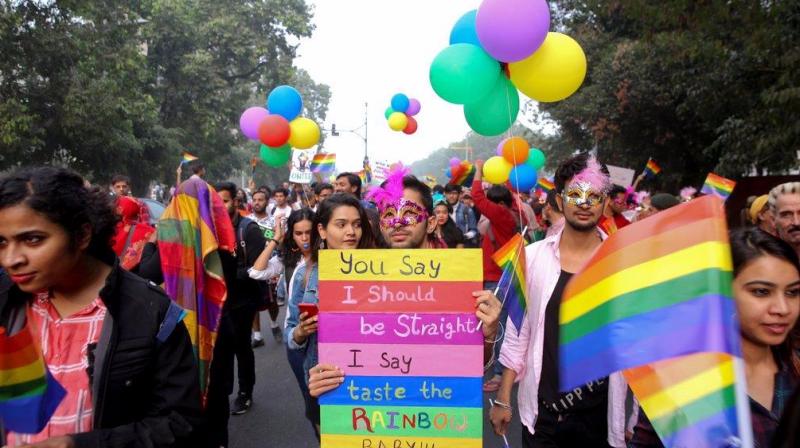Humsafar Trust moves Supreme Court against Sec 377
Led by Ashok Row Kavi, petition claims section 377 of Indian Penal Code deprives LGBTQ persons of their basic rights.

Ashok Row Kavi, who was the first gay man to publicly come out in 1984, has approached the Supreme Court of India, along with three other gay men and The Humsafar Trust, to decriminalise same sex relations.
The petition has claimed that section 377 of the Indian Penal Code deprives LGBTQ persons of equality before law, freedom of expression, personal autonomy and right to dignity in direct violation of Articles 14, 15, 19 and 21 of the Constitution of India.
The petition has urged the apex court to restrain the authorities from enforcing section 377 with regard to consensual, sexual conduct between adults in private.
A Supreme Court bench of Chief Justice Dipak Mishra, Justices D Y Chandrachud and A M Khanwilkar on Tuesday May 1, issued notice to the Union government and asked it to respond with its view on the petition.
Speaking about it, Ashok Row Kavi, founder chairperson of The Humsafar Trust said, “I have been fortunate in being able to come out of the closet, but have personally witnessed the humiliation that LGBTQI people face and the detrimental emotional impact criminalization and stigma has on them. More than anything else I have witnessed the negative, impact of the law under Section 377, IPC on the lives of LGBTQI persons, particularly gay men and transgender persons, both physically and emotionally, as a result of which they live double lives.”
He further added, “The criminalization of their core being has devastating impact on their psyche. The Humsafar Trust was primarily set up to empower LGBTQI communities to overcome the stigmatization resulting from the law and has been working on these issues for the past 24 years. Therefore it is my strong belief that IPC Sec 377 must exclude consensual, sexual conduct between adults.”
The others who have filed the petition along with him are Vivek Anand, CEO of The Humsafar Trust, Gautam Yadav, who handles crisis management cases and advocacy efforts on sexuality and HIV and Yashwinder Singh, who works in HIV/AIDS related healthcare programs with homosexual men and transgender persons at HST.
Section 377 of IPC used to harass, extort and blackmail
- Between 2016–2018, HST’s crisis response team has attended to 83 crises cases in Mumbai. Of these 83, 6 cases involved an adult, homosexual male being blackmailed by the police under the fear of Section 377, IPC. In 12 cases, adult, homosexual males were threatened of a false accusation under Section 377, IPC and victims of extortion by ordinary persons, sometimes up to Rs. 1,00,000/-.
- An online survey conducted by HST involving gay men and transgender persons revealed that around 57 per cent had been subject to the fear and misuse of law under Section 377, IPC at least once in their lifetime in varying degrees, with 37 per cent having experienced victimization within the last 12 months at the time of the survey.
- Crisis data reports by HST found 52 independent instances were LGBTQ persons have faced harassment and discrimination in workplace and healthcare settings because of their identity but none of these individuals sought or could seek legal recourse.
- In 2016, HST undertook a study titled “Understanding the Impact of the Supreme Court judgment on Section 377 on LGBTQ Communities”. The results showed that 2 in 5 LGBTQ persons had faced blackmail or know someone who has been a victim of blackmail since the Supreme Court’s decision to recriminalize homosexuality.
- In 2017 HST conducted a study with the Transgender community in three cities (Mumbai, Delhi and Bangalore) found study 59 per cent of Transwomen experienced violence.
- Section 377 affects lesbian women, bisexual women and transpersons (transmen in particular) as well. It is used to harass lesbian couples and as an impediment to lesbian relationships. There have been numerous reports of lesbian couples being harassed/ dissuaded from staying together using Section 377. Between 2017 and 2018, The Humsafar Trust, through its LBT support group Umang, handled 4 cases of lesbian couples facing harassment from police and their families for wanting be in a same sex relationship.

